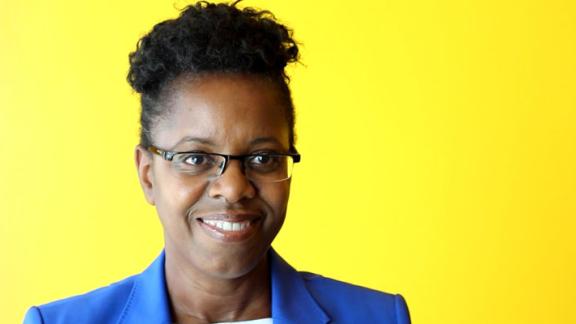The NHS People Plans focus on inclusive leadership is welcomed but how will it be measured

In this blog written for the Health and Care LGBTQ+ Leaders Network, workforce programmes director at North Middlesex University Hospital, Alfredo Thompson, reflects on the NHS People Plan's focus on compassionate and inclusive leadership and asks: how we can elevate these skills to not only be seen as meaningful, but also taught, measured and embedded in leaders across the NHS?
As a black gay man in the NHS, I suppose I welcome the recent publication of the NHS People Plan by NHS England and NHS Improvement (NHSEI). I work in the HR profession and the expectation in the plan - that NHS leaders become compassionate and inclusive - ticks all the right boxes. However, as a naturally curious person, I can’t help but question: how are we going to accomplish this?
There are several good things about the plan. It states that NHSEI will publish a framework for executive boards and, by extension, senior leaders around the type of behaviours that are expected. I’m sure I’m not the only one who welcomes this. However, as the framework is yet to be published, there are still many questions which require answering.
Firstly, how are we going to ‘teach’ compassionate and inclusive leadership skills? Can they be taught or are they largely dependent on the personalities of individual leaders?
The second big question I’m left with is: what happens to all the current leaders whose behaviours are misaligned to whatever framework is published? What level of support will be available to help individual leaders transition to this new leadership paradigm?
The last big question I’m exploring is: how is the NHS and its people practices going to reinforce all the positive, compassionate and inclusive leadership behaviours? Will rewards be based on exhibiting these behaviours?
The explicit move towards compassionate, inclusive leadership is absolutely the right thing to do, however, it will not be easy. I doubt anyone will disagree with the publication, but the recent reaction to the error in the People Plan conflating LGBTQ+ with disability, and the follow-up overly critical views of the chief people officer, demonstrate exactly how much we need to do to become really compassionate.
A new type of leadership
Inclusive leadership can mean a lot of things to different people. We know our practices aren’t inclusive and, for most of us, we’ve had the notion that a ‘good leader makes all the decisions,’ and that ‘a good leader takes control.’ We know these concepts of leadership are outdated and will no longer work in a modern NHS, but the transition will be a bumpy one.
It will be difficult for a successful operational manager who has achieved and worked their way up the NHS bands/career ladder by using command and control tactics, to suddenly become compassionate and inclusive. Their successes have never been measured by how compassionate and inclusive they are.
This leads me to ask another question. Just like our hard performance targets - for example, referral to treatment times - will we now have measures for ‘cultural intelligence,’ ‘cognisance of bias’ and so forth? If this is to be the case, how will the NHS make these measures meaningful, instead of making compassionate and inclusive leadership feel like a fluffy ‘motherhood and apple pie’ ideology.
Being compassionate and inclusive, especially in COVID-19 times, is key to the success of a leader and their teams. Making every member of the team feel like they are truly valuable and have something to contribute is no easy task. Taking the time out of an already busy schedule to be curious about how our teammates are doing, and genuinely being interested in their wellbeing, takes a lot of courage and bravery.
Ensuring equity and fairness requires openly challenging bias and a leader who, at this very moment, may well be deemed ‘not a good fit.’ However, this is the type of leadership we must learn and adapt to if we are going to ensure we reduce experiences of bullying and harassment; violence and aggression; perceptions of poor career progression; and improve representation of BAME and LGBTQ+ colleagues at all levels of the organisation.



